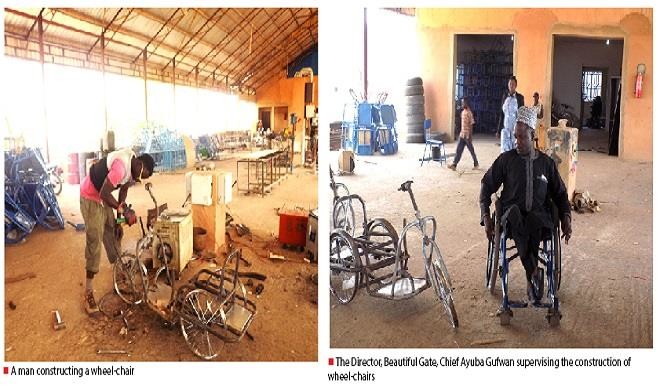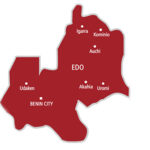
At the age of five, Ayuba Burki Gufwan lost his two legs to poliomyelitis and with it, his dream of becoming an activist. Born in Panyam, Mangu Local Government Area of Plateau State, Ayuba’s father believed it was no use sending a physically challenged child to school. He had based his assumption on the fact that no one would hire a disabled to work as a professional while other normal people roamed the streets in search of employment.
So at a tender age, Ayuba’s father convinced him to learn blacksmithing instead. But Ayuba didn’t find it appealing, he knew it wasn’t his calling and insisted on going to school even as he struggled to move around without a wheel chair. But when an uncle bought him one, with a strong will, Ayuba defied all odds and went ahead to pursue western education from primary, secondary to tertiary at the College of Education Pandam, in Plateau State. He eventually went further to become a graduate of Law from the University of Maiduguri.
Today, Ayuba, still confined to a wheel chair, has turned his misfortune into a passion and is providing succour for about 80 orphans and handicapped at a centre widely known for the construction of wheel chairs which he named Beautiful Gates.
Right opposite the University of Jos permanent site, along Farin Gada road in Jos, Beautiful Gates – a centre set up by Ayuba Burki Gufwan in 1999, is bridging the gap between polio eradication, rehabilitation of polio survivors and improving the lives of people with disabilities in Nigeria.
Beautiful Gates has produced about 13, 000 wheel chairs in the last 18 years. Ayuba, who is the director, says the chairs have been distributed all over Nigeria, with about 70% shared within the 19 northern states, adding that about 60% of the beneficiaries were enrolled into the school and have been engaged in vocational training.
With a total of 32 paid staff and 48 apprentices – all orphans and physically challenged, Ayuba is not only providing employment but a sense of belonging to this class of people. “If you look around, you will see they are very young and the reason we keep them is because it is the only opportunity they have to go to school. We give allowances called apprenticeship fee of N4, 000 at the end of the month but out of the money, we save N2, 000 for them so that we can use it to pay their tuition fee. At the end of the year, they would have saved about N24, 000 and that is enough to pay fees in an average government secondary school in Jos. They go to school in the morning and come to work in the afternoon,” he said.
On what inspired him to establish the centre, the director said: “when I realized I had lost my legs, it compelled me to shelve my dream of being a human rights activist but I told myself that I will instead contribute to improving the lives of people with disabilities in Nigeria.”
He recalled that his trips to several cities in northern Nigeria had an enormous impact on him when he saw the level of polio devastation. “It was beyond my imagination; I saw hundreds of children and adults crawling with their bare hands and limbs, and I reminded myself that the wheel chair was the turning point in my life, therefore I knew that unless these people get mobility their dreams would die.”
Gufwan lamented that there is no major support from government but said the centre has recorded a huge success which included championing a handicapped friendly legislation in some states. In Plateau, they have played a major role in the establishment of a Disability Act, which gave birth to the Disability Commission. They have also gone as far as making a lot of crutches, artificial legs and limbs as well as assisted special schools with furniture, books, writing and instructional materials.
The director said they received grants from Rotary International in 2015 to produce 800 wheel chairs and another in 2013 from Sileka Foundation to produced 2000 wheel chairs. “Also government sometimes buys about 30 to 40 wheel chairs for distribution to physically challenged persons, and that is how we generate income,” he said.
So far, the inmates of the centre seem to be pleased with their venture as Isah Ibrahim, 15, an orphan apprentice said Gufwan’s initiative has provided him with the opportunity to work and attend school, adding that he intends to become a medical doctor someday. On his part, Hassan Isah, 21, who is physically challenged, said he has been working with the centre for five years and was able to go to school and now caters for his needs.

 Join Daily Trust WhatsApp Community For Quick Access To News and Happenings Around You.
Join Daily Trust WhatsApp Community For Quick Access To News and Happenings Around You.

